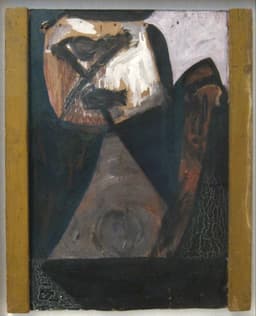
Robert Motherwell
@robert-motherwell
Robert Motherwell: Pioneer of American Abstract Expressionism
Robert Motherwell stands as one of the twentieth century's most influential abstract expressionists, reshaping the landscape of American art between his birth in 1915 and his death in 1991. Born in Aberdeen, Washington, this intellectual and passionate artist became a leading figure in the New York School, championing abstraction at a time when many remained skeptical of non-representational art.
Motherwell's artistic journey was marked by bold experimentation with color, form, and gesture. His work epitomized the abstract expressionist movement's emphasis on spontaneous creativity and emotional intensity. Unlike some contemporaries who focused purely on gestural abstraction, Motherwell masterfully combined philosophical depth with visual power, creating works that challenged viewers to interpret meaning beyond literal representation.
His most celebrated series, the Elegy to the Spanish Republic, demonstrates his ability to infuse abstract painting with profound emotional and political significance. These powerful black and white compositions, created over several decades, commemorate the Spanish Civil War and showcase Motherwell's commitment to art as social commentary. His distinctive vocabulary of biomorphic and geometric forms, rendered in striking color combinations, became instantly recognizable and deeply influential.
Beyond painting, Motherwell proved himself a prolific printmaker and theorist, elevating the intellectual discourse surrounding modern art. He cofounded important artistic publications and taught at prominent institutions, directly mentoring generations of artists who would follow.
Motherwell's legacy extends far beyond his individual achievements. He fundamentally changed how Americans viewed abstract art, proving it could be simultaneously intellectually rigorous and emotionally resonant. His insistence that abstraction need not abandon meaning established new possibilities for visual expression. Today, his works command prominent positions in major museums worldwide, and his theoretical writings remain essential reading for anyone seeking to understand abstract expressionism's revolutionary impact on global contemporary art.